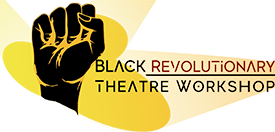During the month of February, BRTW ensemble members are selecting personal Black heroes to highlight everyday. These heroes may have spoken the magic words that first made them see their Black beauty, the people who inspired them to become artists, or even the person who taught them how to make proper mixed greens.
Mildred Loving (nee Jeter) was a Black and Native American woman from tiny Central Point, Virginia. She was a quiet woman who fell in love with an even quieter man named Richard Loving. They married and hoped to spend a quiet life in Caroline County, Virginia with their respective families by their side. There was one hitch in their plan, however: Richard was white.
In order to get around Virginia’s “Racial Integrity Act ” of 1924 the Loving’s married in Washington DC, where interracial marriage was legal. A few weeks after they returned home, however the sheriff burst into their bedroom in the middle of the night, interrogated the Lovings on their marriage, and arrested them. They were freed on a one-year suspended sentence, but they were exiled from Virginia for 25 years. Mildred, incensed, sent a letter to Attorney General Robert Kennedy to ask for help. Kennedy referred the Lovings to the ACLU and this sparked the landmark Supreme Court Case: Loving vs. Virginia.
On June 12, 1967, the court voted unanimously in favor of the Lovings, making interracial marriage legal in all 50 states. The Loving’s victory was cut short, however, after Richard was killed by a drunk driver in 1975. Mildred Loving continued to live a private life with her and her husband’s children until her death in 2008. Before she died, however, she made a public statement supporting same-sex marriage:
Surrounded as I am now by wonderful children and grandchildren, not a day goes by that I don’t think of Richard and our love, our right to marry, and how much it meant to me to have that freedom to marry the person precious to me, even if others thought he was the ‘wrong kind of person’ for me to marry. I believe all Americans, no matter their race, no matter their sex, no matter their sexual orientation, should have that same freedom to marry. Government has no business imposing some people’s religious beliefs over others. Especially if it denies people’s civil rights. I am still not a political person, but I am proud that Richard’s and my name is on a court case that can help reinforce the love, the commitment, the fairness, and the family that so many people, black or white, young or old, gay or straight seek in life. I support the freedom to marry for all. That’s what Loving, and loving, are all about.
BRTW honors Mildred Loving for her courageous love and tenacity, and looks forward to celebrating the holiday of Loving Day on June 12, the anniversary of the Supreme Court decision.
–Mieko Gavia
Ensemble Member

